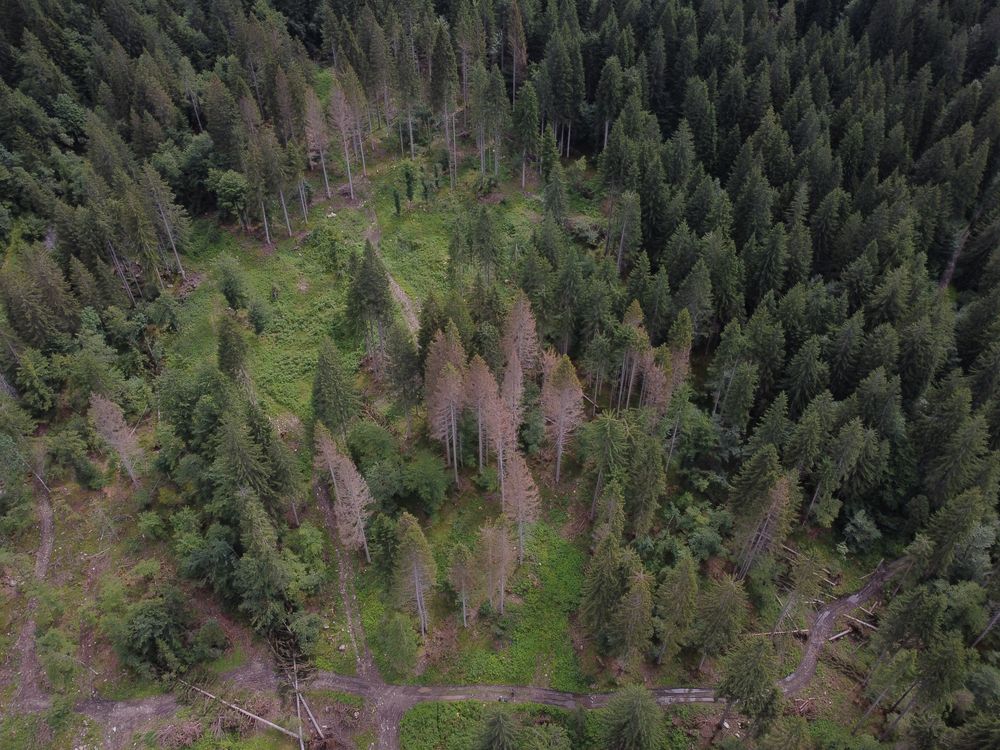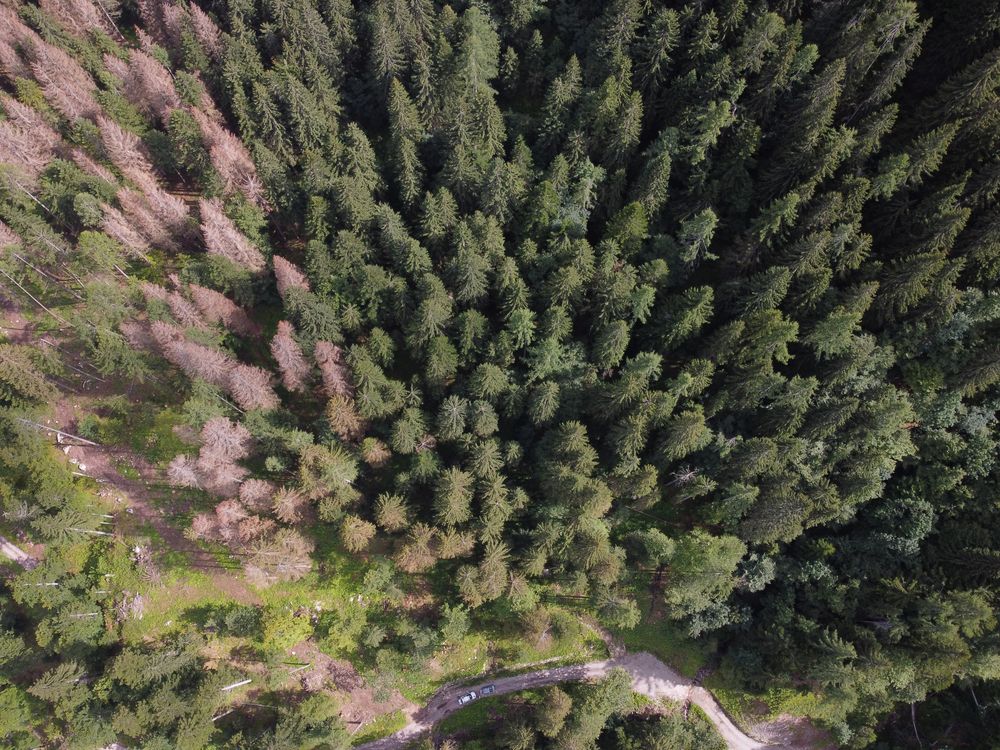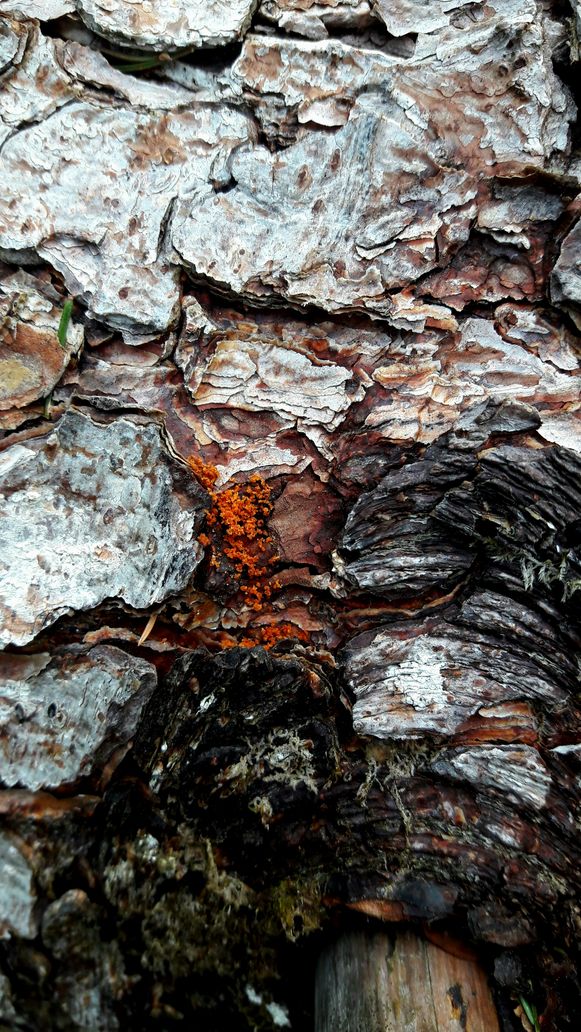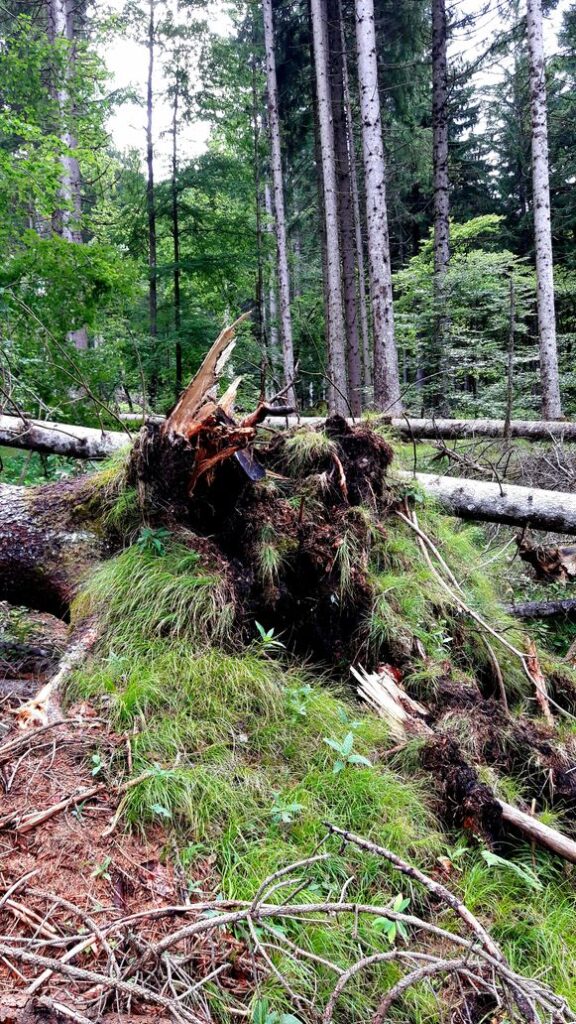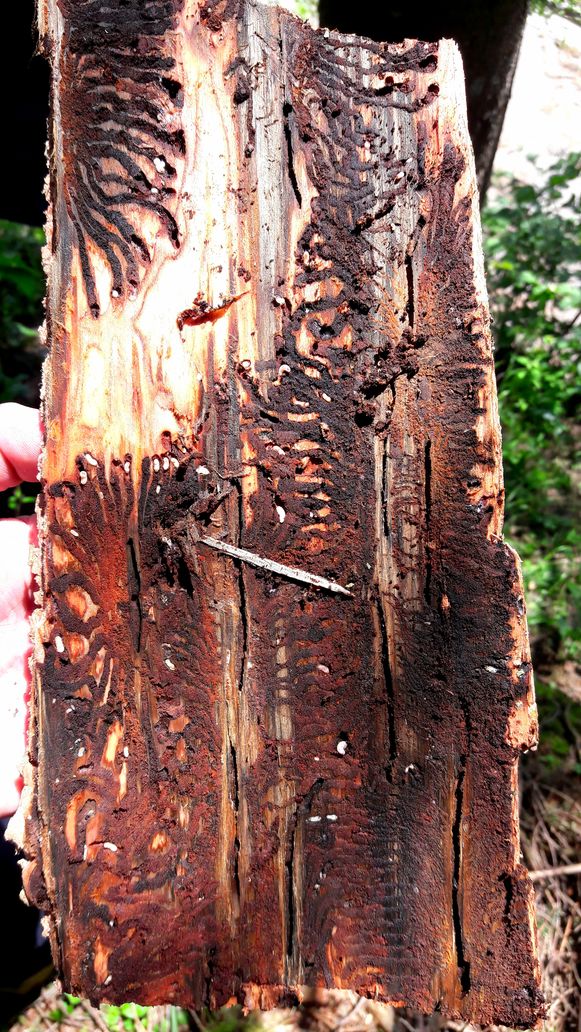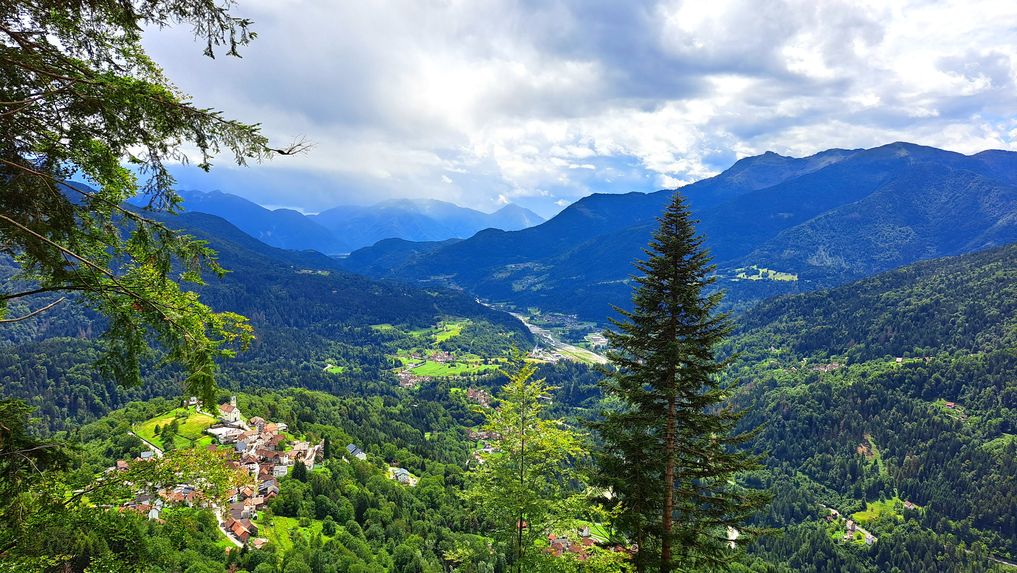Collaboration with University of Padova Aids Efforts to Preserve the Beauty of the Italian Alps
In a bid to combat the escalating impacts of climate change on the Italian Alps’ forests, the RESDiNET team recently concluded field experiments in northern Italy. Their mission was to develop improved forest protection methods to safeguard the region’s natural splendour from the increasing frequency and severity of bark beetle Ips typographus outbreaks intensified by extreme weather events.
The field experiments took place in the province of Udine and involved 300 Norway spruce trees across 15 carefully selected sites located in the mountain forests in a proximity to existing bark beetle infestation spots. Working in close cooperation with the DAFNAE department at the University of Padova, the team sought to understand and mitigate the effects of climate change induced bark beetle outbreaks in the mountain forests.
Dr. Massimo Faccoli and Luca Deganutti, from the DAFNAE department, played pivotal roles in facilitating the successful execution of the experiments. Their positive and productive collaboration provided valuable organizational, administrative, material, and human resource support to the RESDiNET team. The Coordinator’s team members are very grateful Luca Deganutti, who also contributed in capturing beautiful drone imagery of the experimental plots.
The urgency of these research efforts comes in the wake of a series of extreme weather events that have plagued Italy since early 2023. The country has witnessed a range of disasters, including winter droughts, floods, tornadoes, extreme temperatures, and severe windstorms capable of causing damage to airplanes. In response to these challenges, the RESDiNET team’s focus on forest protection is aimed at mitigating the impact on natural habitats and landscapes.
On July 24, 2023, a devastating windstorm in northern Italy resulted in the loss of 25,000 predominantly spruce trees in a matter of minutes. The aftermath of such destruction leaves broken and uprooted trees, providing an abundant breeding substrate for forest pests, particularly bark beetles. The increased presence of these pests poses a significant risk of herbivore-induced tree mortality, further endangering mountain stands.
However, by implementing timely forest management measures, the RESDiNET team aims to substantially reduce the risk and intensity of bark beetle outbreak proliferation. These proactive strategies aim to preserve the breathtaking divine beauty of the Italian Alps for generations to come, ensuring that future visitors can continue to revel in its awe-inspiring landscapes.
The team’s commitment to enhancing forest protection methods and their collaboration with the University of Padova mark a significant step in safeguarding the iconic Italian Alps against the ever-worsening consequences of the climate crisis. Through their collective efforts, they aim to create a sustainable and resilient future for one of the world’s most cherished natural wonders.
For more information about the field experiments, please contact the project coordinator Dr. Rastislav Jakuš.
